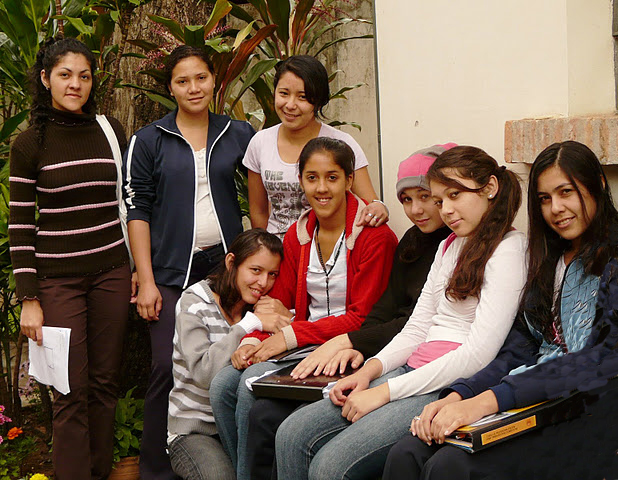

"We're learning a lot, and the programme is teaching us to love ourselves"

Around the world, 53 million domestic workers, most of them women, labor long hours under poor conditions, low pay and little access to benefits such as health and education. Because many are undocumented or working illegally, experts say the true number of these ill-treated workers is probably closer to 100 million. Eleven million of them are children.
The Millennium Development Goals Achievement Fund is working in Latin America to improve the lives of this vulnerable group, to secure decent working conditions, appropriate salaries and the respect of their rights. In Paraguay, the MDG-F-funded “Oportunidades” initiative is helping domestic workers obtain their basic primary education diploma, giving them access to better-paying work.
"Now we feel that we won’t have to work as maids all our lives, and that one day we can become professionals,” said 17-year-old Verónica Godoy, the youngest of 130 women participating in the joint UN programme, which operates centers around the country offering the seven-month basic education course.
According to official data, only two thirds of domestic workers in Paraguay have finished sixth grade. Many are forced to leave school early, and are doubly discriminated against, as women and as workers in a sector with no benefits, lower wages and longer hours than other jobs.
"We're learning a lot, and the programme is teaching us to love ourselves," said Priscila Zacarías, who took part in a workshop to strengthen self-esteem. "They make us feel important, because for us it is a luxury to finish sixth grade and to be able to continue working."
The joint programme also funds training sessions on labor rights that have benefited some 700 workers, teaching them what to do in the case of unfair dismissal, how to claim bonuses, and how to identify and take action against domestic violence, a widespread scourge in Paraguay.
The programme, a collaboration between the government and five UN agencies (UNICEF, UNDP, ILO, UNFPA and UN Women), aims to improve work opportunities for Paraguayan young people, with a focus on domestic workers and disadvantaged youth at risk of migrating.
It is part of the MDG-F’s effort to help countries like Paraguay to reach the Millennium Development Goals of reducing poverty and improving livelihoods, particularly among the most marginalized and excluded populations.
In neighboring Brazil, the MDG-F funded a study that found that, despite recent gains in minimum wages and paid vacation, domestic workers continue to suffer from social exclusion, violation of their rights and unequal access to justice.
Creuza Maria Oliveira, president of Brazil’s National Federation of Domestic Workers, said that racism and sexism are deeply prevalent in Brazil, where domestic work is done mostly by women and blacks.
In 2009, 7.2 million Brazilians were employed as domestic workers, a figure which represents 17 percent of all working women and 20 percent of the workforce of black women. Only a quarter had signed work contracts guaranteeing their rights.
Last June, Paraguayan and Brazilian women joined workers from other Latin American countries to attend an ILO Conference in Geneva that adopted the Convention on Domestic Workers. The Convention stipulates that domestic workers must have the same rights as other employees, including schedules, a weekly rest of at least 24 consecutive hours and limits on payments in kind.
Click here to read about the MDG-F's work in Paraguay.
Click here to read about the MDG-F's work in Brazil.
Click here to read other success stories from the MDG-F's work to fight poverty and improve livelihoods around the world.